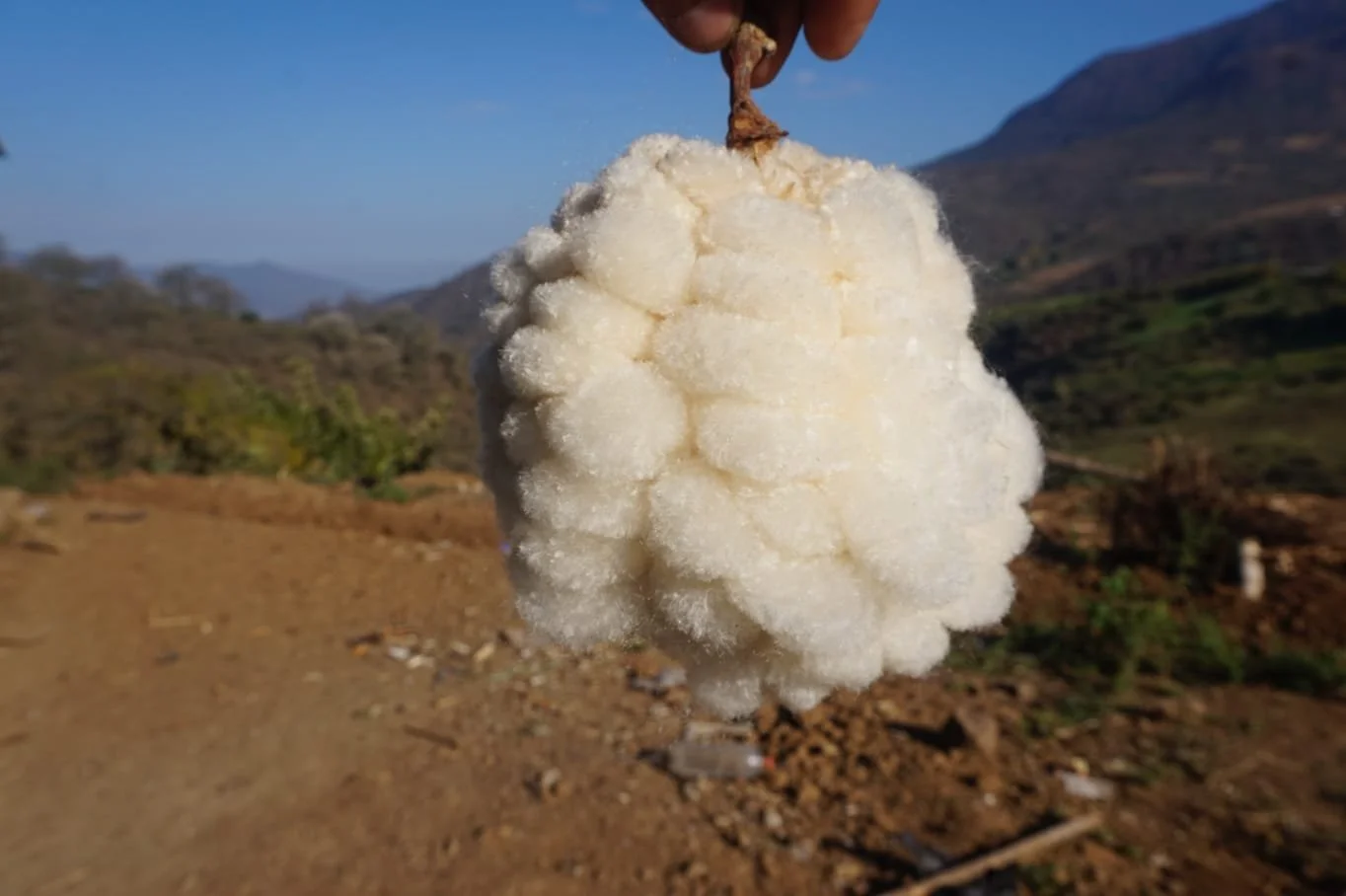A Sustainability-Focused Initiative by Peruvian Designer Susan Wagner
The eighth edition of the Ibero-American Biennial of Design in Madrid (BID 2022) awarded prizes for Design and Sustainability and mentions in Fashion Design, Textile, and Accessories to Peruvian fashion designer Susan Wagner. The designer wins recognition for her "C E I B O x SW" capsule collection, which features garments crafted from kapok fiber sourced from trees indigenous to northern Peru's Bolivar region, located between the departments of Lambayeque and Cajamarca. The botanical name for these trees is Ceiba Pentandra.
Photo Courtesy of Susan Wagner
This fiber is being researched and developed by Jonathan Sanchez, an industrial engineer at Conceiba, who employs men and women from the Bolivar community in the extraction and hand-spinning of the fiber, thus salvaging their traditions of manual labor. Jonathan was in charge of guiding Susan Wagner along the dry forests, an ecosystem that stretches from Lambayeque, Cajamarca, and Tumbes to Ecuador. The lush green of the hills' massive tree trunks and branches may be seen from every vantage point on the mountain range. With the exception of Cerros de Amotape Park and communities like Bolivar that act as forest guards, the dry forests are not all protected.
The natural cellulose fibre found in the dried fruit of the kapok tree has various properties like being silky soft and dry to the touch, as well as lighter than cotton, and it’s grown in the forest without the use of pesticides, so it's completely all-natural. It is also a clean and long-lasting resource. When you buy kapok, you are helping to preserve the forest's kapok trees and the economies of these regions. Susan Wagner believes that the kapok has great potential since it can have a good social impact on communities like Bolivar. Employing the possibilities of kapok in the textile industry can provide fruit-growing farmers with an additional revenue stream whilst generating more incentives for kapok tree cultivation.
Photo Courtesy of Susan Wagner
For the designer, not everything revolves around the materials but also around the ideas of sustainability and culture. Most of her projects involve working with communities and finding collaborative approaches. When she started her own eponymous brand in 2005, it was based on the idea that more eco-friendly and ethical practices are the key to better fashion consumption, which is why her garments are made from organic cotton, baby alpaca fibers, silk, and recycled materials. Sustainability is at the core of Susan Wagner’s designs, and she is proud to help make and keep artisanal jobs around Peru by working with people whose skills have been passed down from generation to generation.
Susan Wagner believes this recognition is about more than winning a competition, it is about educating the community about sustainable design and actively making a change in the fashion industry. Sustainable design is a big part of the movement toward a more sustainable society. The Ibero-American Biennial of Design recognizes these contributions and helps consumers find more environment conscious options.
This is one of the nine most prestigious IDB 2022 Awards, emphasizing the significance of purposeful design. More than 700 projects from 22 Ibero-American countries participated. In a week-long celebration of pure design, the BID opens on November 21 at the Central de Diseño Matadero and also exhibits 300 selected pieces by the participating designers at the Museum of Decorative Arts in Madrid. The exhibitions will run at their various Madrid venues until February 2023.



